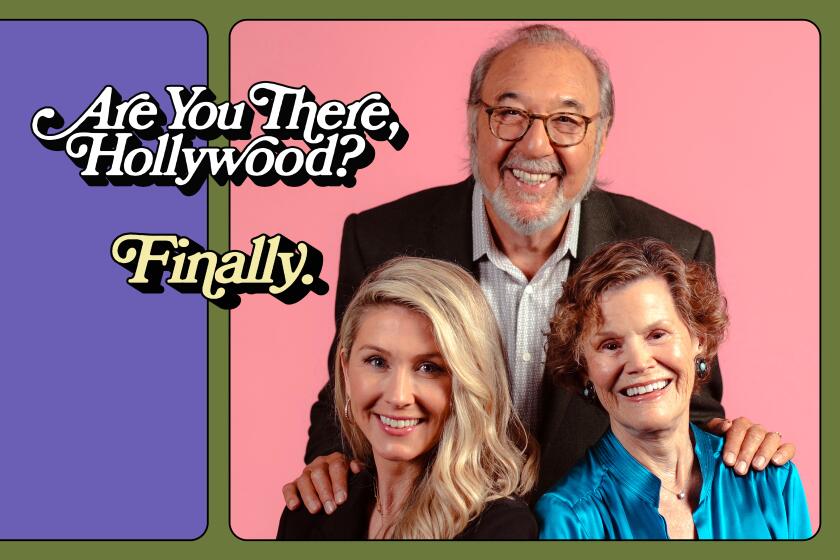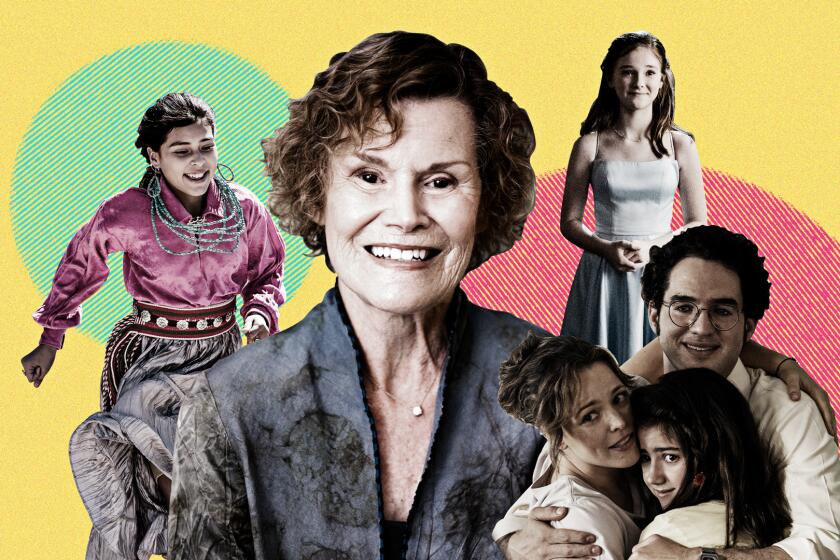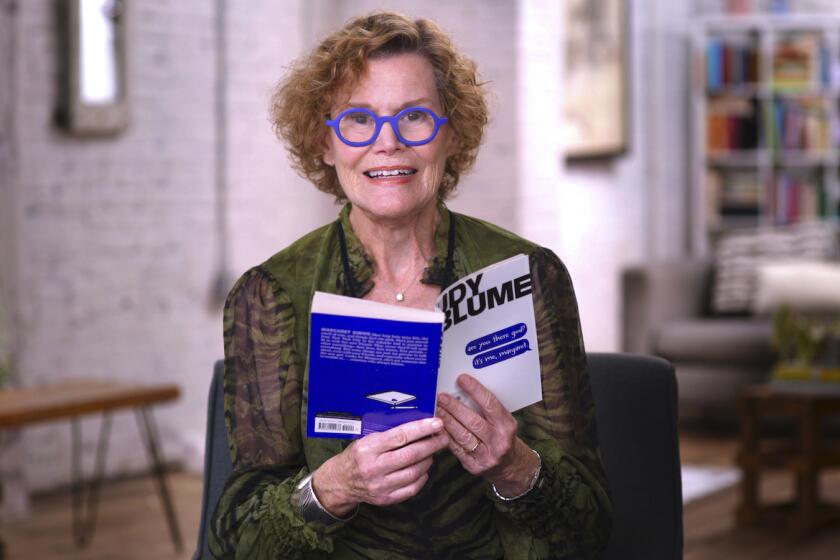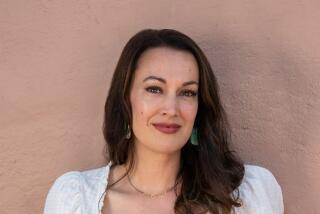Review: ‘Are You There, God? It’s Me, Margaret’ is as lovely and amazing as the Judy Blume novel
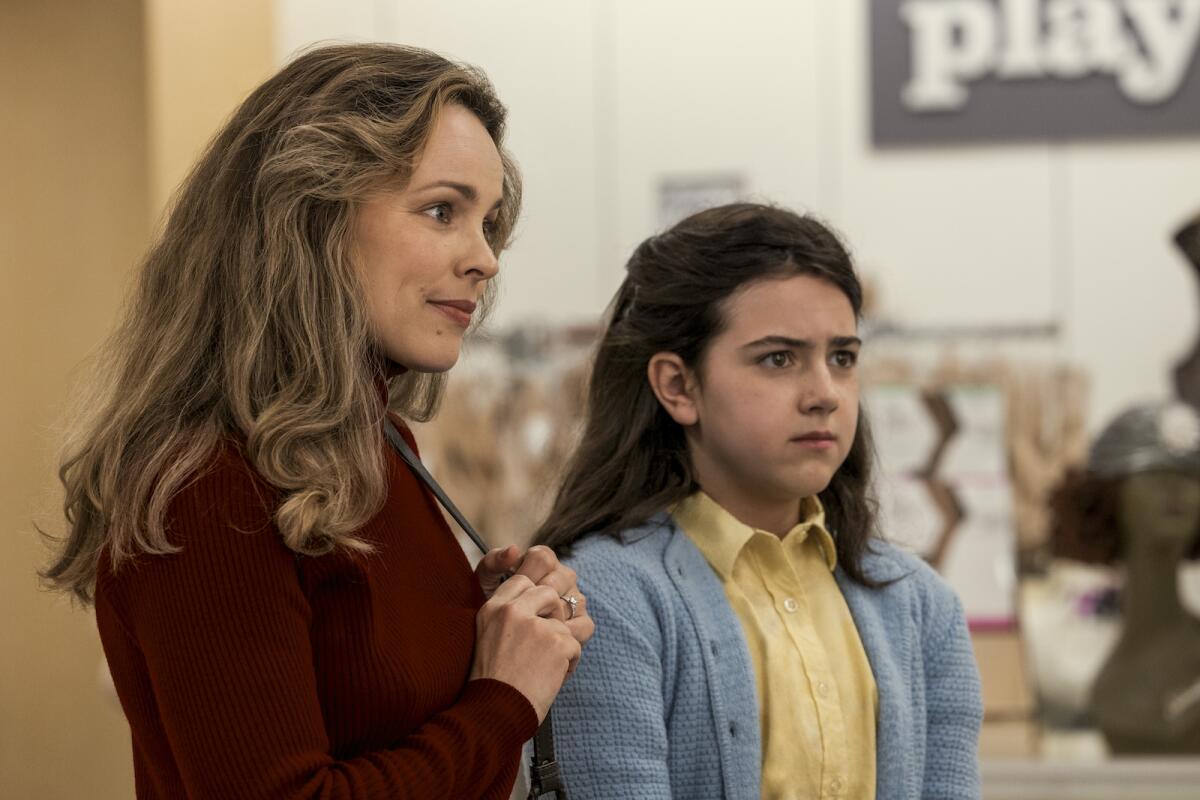
What a wonder that the film adaptation of Judy Blume’s beloved 1970 young adult novel “Are You There God? It’s Me, Margaret” is as lovely, heartfelt and, indeed, deeply radical as the original text. Blume long resisted granting permission for her work to be adapted to the screen, but when director Kelly Fremon Craig and producer James L. Brooks approached her about “Margaret,” the 83-year-old author knew her storied work was in the right hands.
Fremon Craig proved her ability to capture the nuances of teenage life in “The Edge of Seventeen,” and with “Are You There God? It’s Me, Margaret,” for which she also wrote the screenplay, she delivers a wonderfully lived-in family dramedy about religion and sexuality and the importance of girls’ stories. It’s a film that is both warmly entertaining and downright revolutionary, considering the current state of discourse and legislation about women’s bodies in our country.
Judy Blume, James L. Brooks and Kelly Fremon Craig hash out — and argue over — how they finally came to adapt “Are Your There God? It’s Me, Margaret.”
We first meet Margaret (Abby Ryder Fortson) at summer camp, a utopia of gloriously embodied girlhood: swimming, jumping, laughing, eating with her friends, the girls fully expressing a sense of liberated, uninhibited joy in their bodies, unscrutinized and unimpeded by outside forces.
This montage is a brilliant introduction to the story, emphasizing the rude awakening Margaret experiences when she’s ripped from her childhood home, a cozy, bohemian Manhattan apartment, and deposited across the river in a New Jersey suburb, separated from her dear grandmother Sylvia (Kathy Bates). It’s an upwardly mobile move that nevertheless leaves the Simon family floundering for their identities — Barbara (Rachel McAdams) struggles to be a good housewife, while dad Herb (Benny Safdie) flails at yard work, and Margaret must wade into the lion’s den that is the sixth grade, with all its attendant gender politics.

A bewildered Margaret is thrown into the gantlet of adolescence via her new neighbor, the unabashed and bold Nancy (Elle Graham), who introduces our heroine to bust-increasing exercises and the necessity of practicing kissing on a bedpost. In Nancy’s “secret club” (no socks allowed), Margaret finds a much-needed group of allies and a supposed safe space in which the girls talk with anxiety and excitement about the realities of puberty. But Nancy rules with an iron fist, fomenting a toxic dynamic of competition and bullying.
Much of “Are You There God? It’s Me, Margaret” is about the private and often confusing physical details of changing bodies and the harrowing journey of navigating these transitions in relation to other people. But it’s also about the way that Margaret develops as a person — intellectually, morally and spiritually. With a Jewish father and a Christian mother who raise her in a religious void, her teacher, Mr. Benedict (Echo Kellum), suggests Margaret do a research project on the subject of religion.
Fifty-three years after the publication of Blume’s ‘Are You There God? It’s Me, Margaret,’ the fight to destigmatize menstruation continues in film and TV.
She tries out temple to the delight of Sylvia, as well as a Southern Baptist church, a Protestant Christmas Eve Mass and even dabbles in Catholic confession. All the while, she chats with God about her innermost thoughts and feelings, processing the complexities of her social and family life. Whether or not she believes, Margaret’s “God” is a confidant and friend that exists outside the power struggles and religious divisions that have shaped her family life for better or for worse.
Fremon Craig brings a fluidity and easy rhythm to the film, which is highly specific to its 1970 setting but fresh and contemporary too. It remains true to the book but also highlights that so many of these questions and issues remain the same, five decades later.
Steve Saklad’s rich and detailed production design immerses us in this world, bursting with macramé and houseplants and tapestries, but it also tells a story in the Teenage Softies sanitary napkins or the disastrous living room that Barbara stalls in furnishing.
And the people populating this film make it beautifully real and moving.
Fortson brings Margaret’s tweenage anxiety to vivid life as she struggles to figure out who and how she is in the world. Graham is hilarious and heartbreaking as the ostensible antagonist, her outsize bravura punctured by a wrenching moment of true vulnerability. As Margaret’s loving but frazzled parents, McAdams and Safdie are remarkably sincere, discrete characters in their own right.
This touching nonfiction film, featuring interviews with Blume and famous fans such as Lena Dunham and Molly Ringwald, offers a comprehensive look at the beloved author’s enduring popularity.
Fremon Craig updates Blume’s classic text while maintaining the authenticity and intimacy with which so many readers connected. She draws out themes that feel as trenchant as ever, especially the essential truth that bodies, in all their mysterious and unruly ways, cannot be controlled, not by ourselves and not by others. Our bodies — ourselves — are ours alone, as are our actions, our lives and our stories. “Are You There God? It’s Me, Margaret” proves to be a powerful and moving reminder of this crucial life lesson that can be all too easy to forget.
Katie Walsh is a Tribune News Service film critic.
‘Are You There God? It’s Me, Margaret’
Rated: PG-13, for thematic material involving sexual education and some suggestive material
Running time: 1 hour, 45 minutes
Playing: Starts April 28 in general release
Watch L.A. Times Today at 7 p.m. on Spectrum News 1 on Channel 1 or live stream on the Spectrum News App. Palos Verdes Peninsula and Orange County viewers can watch on Cox Systems on channel 99.
More to Read
Only good movies
Get the Indie Focus newsletter, Mark Olsen's weekly guide to the world of cinema.
You may occasionally receive promotional content from the Los Angeles Times.
